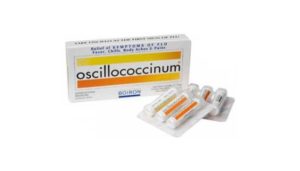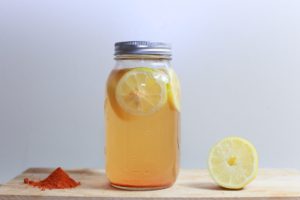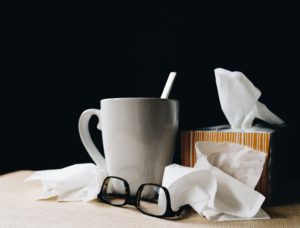-Jade Arellano, msacn
Flu and cold season has been making its way across the country since October, and it’s still going strong. Luckily, you can still fight the viruses that cause flu and cold with an entire host of natural remedies! The best part is that these natural remedies won’t have any of the negative side effects that conventional “remedies” like the flu shot or Tamiflu can have. In fact, with the CDC admitting that the flu shot this year is only 10% effective, the risks to benefits analysis of that option just isn’t bearing weight for most people. As for Tamiflu, the FDA itself has reported an increase in neuropsychiatric events related directly to the utilization of Tamiflu (or it’s generic, oseltamivir)1. In addition, this medication only reduces the duration of the flu by approximately 1 day!
So what are those of who wish to avoid the negative effects of the flu shot or Tamiflu to do, when we are hoping to avoid getting the flu or reducing the severity if we are exposed? We’ve put together a great list of super safe and affordable supplements and botanicals that will help you get through this season with ease.
Elderberry– Elderberry is a member of the honeysuckle family, and is a really great botanical to include because not only is it antiviral, anti-inflammatory, and high in antioxidants, but it contains over 87% of your daily need for Vitamin C! Studies have actually proven elderberry to be more effective at reducing both severity and duration of the Human Influenza virus than Tamiflu, but without the negative side effects2! Elderberry comes in many forms, and while syrup seems to be the most popular, it’s important to remember that a syrup containing can sugar will not be as effective as sugar makes it very difficult for your body to fight infection! Opting for a powder like this one eliminates the sugar, plus it’s super easy to mix into something like applesauce or yogurt when administering to children.
Echinacea– Echinacea is likely one of the most well-known herbal remedies for any type of flu or cold symptom management, and for good reason! Used traditionally to treat cold and flu viruses for centuries, echinacea have been studied recently and shown to have wonderful anti-viral effects. In fact, one study3 found it to be more effective than Tamiflu at reducing severity and duration of the flu, without the negative side effects. Echinacea in tincture form is most effective and easily found at health food stores, but it can also be found in a capsule for those who aren’t a fan of the taste of herbal tinctures.
Oscillococcinum– This homeopathic blend flies off the shelves during flu season. When taken within the first day of symptoms, this homeopathic helps your body to fight off the invading virus so that you don’t become ill. Most people find that this aspect is most effective when used at the first signs of illness, rather than starting its use after already falling ill. Due to this, we recommend keeping Oscillo on hand in case you wake up in the middle of the night feeling crummy. You can also find a homeopathic doctor in your area who will be able to recommend single remedies specific to certain conditions.

WishGarden Herbal Tinctures– Not all herbal tinctures are created equal, and sometimes synergistic blends are much more effective than single herbs. This is just one reason why these tinctures are so effective at reducing symptoms and severity. Of particular interest to those wishing to prevent and treat the flu and cold are the Kick-Ass Biotic, Kick-Ass Immune, Kick-Ass Sinus, Get Over It, Serious Cough, and Deep Lung formulas. These tinctures effectively alter the course of a virus that your body may be fighting off, for the better! Wish Garden also creates blends that are super safe for children and pregnant women, the Kick-It Biotic, Kick-It Cough, and Kick-It Immune. The plant constituents contained in these blends have been carefully selected for how they affect certain parts of the body (such as the sinuses or the lungs), so that they are that much more effective. WishGarden has basically taken the guesswork out of which herbs are best suited to your ailments. You can find their tinctures in most health food stores, as well as online.
Vitamin C– Perhaps the most commonly thought of use for Vitamin C is cold prevention! Vitamin C has broad-reaching effects on our immune systems, influencing the function of both the innate and adaptive systems, key immune cells, and the production of antibodies to cold and flu viruses. When we have less-than optimal levels of the vitamin, immunity suffers, and this can make us more susceptible to catch every cold that comes our way. When an infection is present in the body, immune cells furiously gobble up vitamin C—it appears that immune cell function is directly related to how much vitamin C they contain. Because they take up so much of the vitamin while they are fighting invading viruses, blood levels of vitamin C drop quickly, making it that much more important to increase your intake of the vitamin when you are feeling under the weather. Although the reviews are mixed on whether vitamin C can prevent the common cold, there is plenty of evidence showing that it reduces the duration and the symptoms, making kicking a cold or flu much easier4. Older adults, chronically ill people, smokers, and people under stress are more likely to have insufficient levels of vitamin C, making supplementation especially beneficial.

NAC- NAC, or N-Acetyl-Cysteine, is a supplement commonly used because it is a precursor to glutathione, which is the most prevalent antioxidant found in the human body. Supplementation of NAC has been shown to prevent onset as well as limit duration of symptoms of cold and flu. NAC is also a mucolytic, meaning that it breaks up and thins out mucous, leading to a lesser likelihood of disease onset like pneumonia that can potentially stem from the flu. In one study by Silvio De Flora, M.D., of the Institute of Hygiene and Preventive Medicine at the University of Genoa, Italy, it was found that of those who had detectable flu virus in their bloodstream, only 25 percent of those taking NAC developed flu symptoms. This is of particular importance because it shows that even those who actually had the flu, only ¼ of them developed symptoms!
Vitamin D– In the low winter months, with less sunshine available for our bodies to utilize in making Vitamin D, levels plummet. People with low Vitamin D levels report having more cold and flu viruses than those with sufficient Vitamin D levels. While keeping your Vitamin D levels up to par is better at actually preventing onset of flu and cold than treating it, increasing the amount of D you take if you do start to feel symptoms can also help you fight off the virus. Vitamin D is extremely important in how well our immune system functions. In one experiment5, researchers isolated and incubated human white blood cells with varying levels of vitamin D, then exposed them to lipopolysaccharide (LPS), this is a molecule associated with bacterial cell walls that is known to promote really intense inflammatory responses in humans. LPS triggers an inflammatory cascade that results in higher levels of IL-6 and TNF-alpha, which are the major players in inflammation and inflammatory response. Cells incubated with no vitamin D and others in solution containing 15 ng/ml of vitamin D produced high levels of cytokines IL-6 and TNF-alpha, so this means there was a high inflammatory response. Cells incubated in 30 ng/ml vitamin D and above showed significantly reduced response to the LPS. Through a complex series of experiments, the researchers identified a new location where the Vitamin-D receptor appears to bind directly to DNA and activate a gene known as MKP-1. What MKP-1 does is when activated it interferes with the inflammatory cascade that is triggered by LPS, thus lessening the inflammatory response. This study shows just how important Vitamin D is in immune and inflammation!
It’s also important to note that a diet in high in refined carbohydrates and sugars will lead to a higher susceptibility to flu and cold viruses, and making sure you are sufficient in other nutrients such as zinc and B vitamins is crucial as well. Good hand washing, avoiding hospitals, and staying away from individuals with the flu and cold is always something to consider as well!
Jade Arellano is a Functional Medicine Clinical Nutritionist in Norman, OK at Wellness Speaks. She is a cohost on the Wellness Speaks Podcast and lead practitioner at Root Causes Clinic.
- Department of Health and Human Services, Public Health Services, Food and Drug Administration, Center for Drug Administration and Research. September 20, 2006. https://www.fda.gov/ohrms/dockets/ac/06/briefing/2006-4254b_09_01_Tamiflu%20AE%20Review%202006%20Redacted_D060309_092.pdf . Accessed January 21, 2018.
- Elderberry flavonoids bind to and prevent H1N1 infection in vitro.. Roschek B Jr1, Fink RC, McMichael MD, Li D, Alberte RS. Phytochemistry. 2009 Jul;70(10):1255-61. doi: 10.1016/j.phytochem.2009.06.003. Epub 2009 Aug 12. https://www.ncbi.nlm.nih.gov/pubmed/19682714
- Effect of an Echinacea-Based Hot Drink Versus Oseltamivir in Influenza Treatment: A Randomized, Double-Blind, Double-Dummy, Multicenter, Noninferiority Clinical Trial. Rauš K1, Pleschka S2, Klein P3, Schoop R4, Fisher P5. Curr Ther Res Clin Exp. 2015 Apr 20;77:66-72. doi: 10.1016/j.curtheres.2015.04.001. eCollection 2015 Dec. https://www.ncbi.nlm.nih.gov/pubmed/26265958 . Accessed January 21, 2018.
- The effectiveness of vitamin C in preventing and relieving the symptoms of virus-induced respiratory infections. H. Clay Gorton, DC and Kelly Jarvis DC. Journal of Manipulative and Physiological Therapeutics Volume 22, Issue 8, October 1999, Pages 530-533. http://www.sciencedirect.com/science/article/pii/S0161475499700059 .
- Vitamin D Inhibits Monocyte/Macrophage Proinflammatory Cytokine Production by Targeting MAPK Phosphatase-1. Yong Zhang, Donald Y. M. Leung, Brittany N. Richers, Yusen Liu, Linda K. Remigio, David W. Riches, And Elena Goleva. The Journal of Immunology, March 1, 2012 DOI: 10.4049/%u200Bjimmunol.1102412


